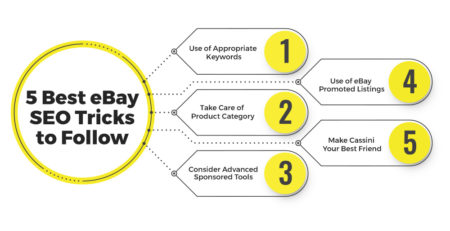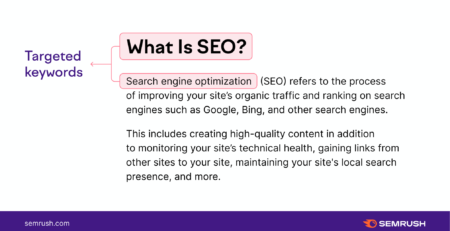Does Responding To Reviews Help Seo?
Hey there! Are you wondering if responding to reviews can help with SEO? Well, you’re in the right place! In this article, we’re going to explore whether engaging with customer reviews can have a positive impact on your website’s search engine optimization. So, let’s dive in and find out if this popular practice is worth your time and effort.
When it comes to SEO, businesses are constantly looking for effective strategies to improve their online presence and rank higher in search engine results. You might be surprised to learn that responding to reviews can actually play a role in boosting your SEO efforts. But how does it work?
By responding to reviews, you not only show your customers that you care about their feedback, but you also create fresh and relevant content on your website. Google loves fresh content, and by regularly engaging with your customers’ reviews, you provide search engines with more information to index. This can help improve your website’s visibility and overall SEO performance.
Now that we understand the potential benefits of responding to reviews for SEO, let’s dive deeper and explore the reasons why it can be an effective strategy for your business. So, buckle up and get ready to discover some exciting insights!
Does Responding to Reviews Help SEO?
1. The Impact of Reviews on SEO
Online reviews have become a vital part of consumer decision-making. Potential customers often rely on reviews to gauge the reputation, credibility, and quality of a business. From a search engine optimization (SEO) perspective, reviews play a significant role in determining the visibility and ranking of a website.
When search engines crawl the internet, they take into account various factors to determine the relevance and authority of a website. Online reviews, particularly those that mention specific keywords or phrases related to a business, can significantly impact SEO. Positive reviews with relevant keywords can boost a website’s visibility in search engine results pages.
Furthermore, the quantity and frequency of reviews also contribute to SEO. Websites with a high volume of reviews are seen as more trustworthy and credible by search engines, leading to improved rankings. Additionally, regularly updated reviews signal to search engines that the business is actively engaging with customers, which can further enhance SEO.
2. The Importance of Responding to Reviews
Responding to reviews is not only crucial for maintaining a positive online reputation and customer satisfaction but also for SEO purposes. When businesses actively engage with customers through review responses, it sends a positive signal to search engines, indicating that the business is attentive and cares about customer feedback.
By responding to reviews, businesses have an opportunity to include relevant keywords and phrases in their responses, further optimizing their website for search queries. It also shows search engines that the business is actively participating in conversations related to its industry, improving its authority and relevance in search engine rankings.
Moreover, engaging with both positive and negative reviews demonstrates transparency and a commitment to customer service. By addressing negative reviews in a timely and courteous manner, businesses can not only potentially resolve issues but also showcase their dedication to customer satisfaction. This can lead to increased positive reviews, boosting SEO potential even further.
3. Best Practices for Responding to Reviews
When responding to reviews, it’s essential to follow some best practices to ensure maximum SEO benefits and customer satisfaction:
- Promptness: Respond to reviews in a timely manner to show that you value customer feedback.
- Personalization: Tailor your responses to each review to demonstrate genuine care and attention.
- Professionalism: Maintain a polite and professional tone in all your responses, regardless of the sentiment of the review.
- Thankfulness: Express gratitude to customers who leave positive reviews, showing that you appreciate their support.
- Problem-solving: For negative reviews, address the issues raised and offer appropriate solutions or the opportunity to resolve the problem offline.
- Keyword integration: When possible, naturally incorporate relevant keywords in your review responses.
By following these best practices, businesses can optimize their review responses for both SEO and customer satisfaction, contributing to improved search engine rankings and a positive online reputation.
4. Balancing SEO and Genuine Engagement
While the SEO benefits of responding to reviews are undeniable, it’s crucial to strike a balance between optimizing for search engines and providing genuine engagement with customers.
Customers appreciate authentic interactions and personal responses. It’s essential to ensure that review responses are not just written for the sake of SEO but genuinely address the customer’s concerns or express gratitude for their positive feedback.
By prioritizing genuine engagement, businesses can create stronger relationships with their customers and foster loyalty. This, in turn, can lead to more positive reviews, which will have a positive impact on SEO.
5. Maximizing SEO Potential with Review Platforms
Utilizing dedicated review platforms can be highly beneficial for businesses looking to improve their SEO through reviews. These platforms, such as Google My Business, Yelp, and TripAdvisor, have built-in SEO features that can enhance a business’s online visibility.
By claiming and optimizing their profiles on these platforms, businesses can ensure that their reviews are prominently displayed in search engine results. Additionally, these platforms often provide opportunities for businesses to respond to reviews, taking advantage of the SEO benefits we discussed earlier.
Furthermore, many of these platforms offer valuable data and insights that businesses can use to improve their products, services, and customer satisfaction. By analyzing trends in reviews, businesses can identify areas for improvement and make data-driven decisions to enhance their SEO efforts.
6. Monitoring and Learning from Reviews
Regularly monitoring and analyzing reviews can provide valuable insights into customer preferences, pain points, and overall sentiment towards a business. This information can be used to improve products, services, and customer experiences, ultimately leading to better SEO performance.
By identifying patterns in reviews, businesses can make targeted improvements and address recurring issues. This proactive approach not only enhances customer satisfaction but also contributes to positive online reviews, benefiting SEO in the long run.
Monitoring reviews also allows businesses to identify and address any negative or false reviews that may harm their online reputation. By promptly responding to these reviews and addressing any concerns, businesses can mitigate the impact on SEO and demonstrate their commitment to resolving issues.
7. Embracing Online Reviews as an SEO Strategy
In today’s digital landscape, online reviews are not just for consumers; they have a direct impact on a business’s SEO performance. By actively responding to reviews, businesses can improve their online reputation, increase customer satisfaction, and enhance their search engine rankings.
Remember, when it comes to SEO and online reviews, it’s not just about generating positive reviews; it’s about how you engage with and respond to them. By following best practices and prioritizing genuine customer engagement, businesses can maximize their SEO potential and create stronger connections with their audience.
Tips for Effective Review Management
1. Encourage Customers to Leave Reviews
Actively encourage your customers to leave reviews on various platforms, such as Google My Business, Yelp, and industry-specific review sites. You can do this by simply asking customers to leave a review after a purchase or by offering incentives, such as discounts or freebies, for leaving a review.
2. Respond to All Reviews
Make it a priority to respond to all reviews, whether they are positive or negative. Show appreciation for positive reviews and address any concerns raised in negative reviews promptly and professionally. This demonstrates your commitment to customer satisfaction and builds trust with potential customers.
3. Use Review Management Tools
Utilize review management tools to streamline the process of monitoring and responding to reviews. These tools can help you consolidate reviews from various platforms, automate review responses, and track trends and patterns in customer feedback. This saves you time and enables you to stay on top of your online reputation effortlessly.
Key Takeaways: Does Responding to Reviews Help SEO?
- Responding to reviews can boost your website’s visibility on search engines like Google.
- Engaging with your audience through reviews shows search engines that your business is active and responsive.
- Positive responses to reviews can encourage more positive reviews and improve your online reputation.
- Addressing negative reviews promptly and professionally can minimize their impact and show your commitment to customer satisfaction.
- Engaging with reviewers can also provide valuable insights for improving your products or services.
Frequently Asked Questions
When it comes to SEO, one common question is whether responding to reviews can actually help. Let’s dive into the topic and find out!
1. How does responding to reviews impact SEO?
Responding to reviews can have a positive impact on SEO for a few reasons. First, it shows search engines that your business is actively engaged with customers and values their feedback. This can improve your website’s trustworthiness and credibility, two factors that search engines take into consideration when ranking websites.
Second, responding to reviews can help you generate more user-generated content. When you reply to reviews, it encourages other customers to leave their own feedback, which in turn generates more unique content for search engines to index. This can increase your website’s visibility and improve your chances of ranking higher in search results.
2. Does responding to negative reviews help SEO too?
Absolutely! Responding to negative reviews is just as important, if not more so, than responding to positive ones. When you address a negative review in a professional and helpful manner, it shows potential customers that you care about resolving issues and providing excellent customer service.
From an SEO perspective, responding to negative reviews also gives you an opportunity to showcase your brand’s values and commitment to customer satisfaction. This can help build trust with search engines and improve your website’s ranking. Remember, it’s not about the negative review itself, but how you handle it that can make all the difference.
3. Should I respond to every review, even the positive ones?
While it’s not necessary to respond to every single positive review, it’s generally a good practice to engage with your customers whenever possible. Responding to positive reviews shows gratitude and appreciation for their feedback, which can strengthen the relationship between your brand and your customers.
In terms of SEO, responding to positive reviews can also encourage more customers to leave reviews in the future. This can lead to an increase in user-generated content, which as mentioned earlier, can have a positive impact on your website’s visibility and search engine rankings.
4. What can I do to make my review responses SEO-friendly?
When it comes to crafting SEO-friendly review responses, there are a few key things to keep in mind. First, incorporate relevant keywords naturally into your responses. This can help search engines understand the context and relevance of your content.
Second, make sure your responses are well-written and provide value to readers. Avoid generic or robotic replies and instead, personalize your responses to show genuine care and concern for your customers’ feedback. This can help build a positive brand image and strengthen your SEO efforts.
5. How often should I check and respond to reviews?
Regularly monitoring and responding to reviews is essential for maintaining a positive online reputation and improving SEO. Aim to check and respond to reviews at least once a day, if possible. This allows you to address any issues or concerns promptly and demonstrate your commitment to excellent customer service.
Additionally, responding to reviews in a timely manner shows potential customers that you are actively engaged and interested in their feedback. This can contribute to higher customer satisfaction and ultimately, better SEO results for your website.
Does Responding to Google Reviews Help SEO? | SEO Tips
Summary
So, does responding to reviews help SEO? Yes, it does! When you respond to reviews, it shows that you care about your customers and their opinions. This can improve your online reputation, attract more customers, and increase your search engine ranking. Plus, responding to reviews gives you a chance to address any negative feedback and turn it into a positive experience for the customer. So, don’t forget to engage with your reviews and watch your SEO efforts flourish!












